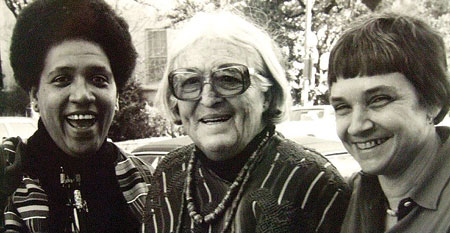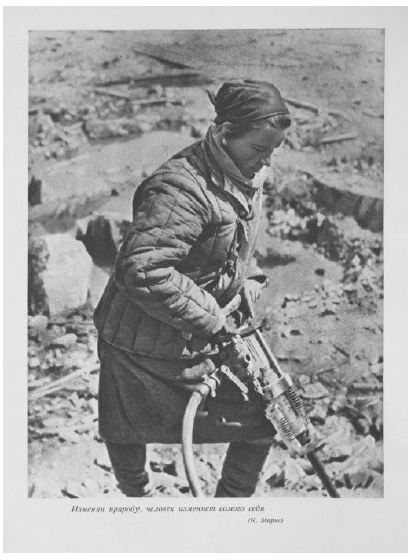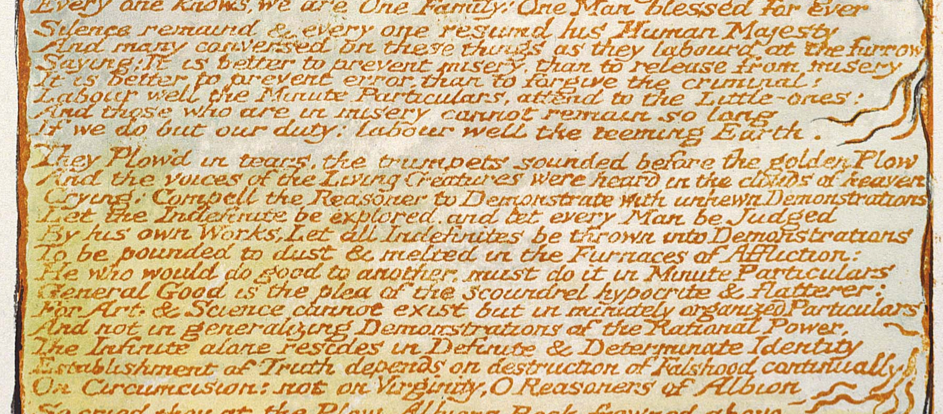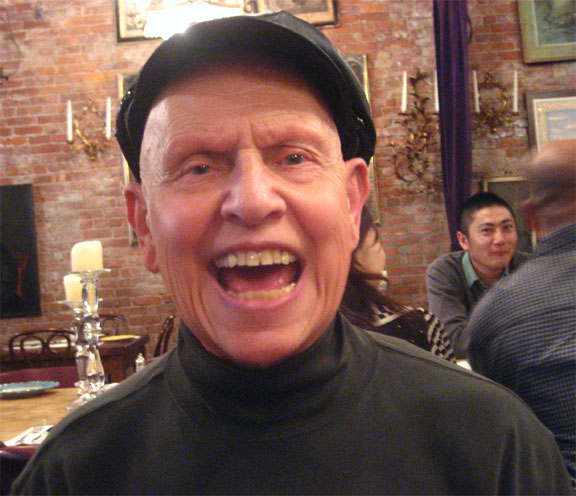Poetics of Identity
textual – aesthetic – social – technological
English 795
Comparative Literature 795
What is identity and why is there so much of it?
Spring 2013
Mondays at 12
FBH 222
Charles Bernstein
discussion list
(class members please subscibe)
email posts via web or patapoetics ---@---sas.upenn.edu


An investigation of the multiple senses of identity for poetry, poetics, and literary scholarship. Starting with a preliminary look at conceptions of idenity in Poe, Hawthorne and Freud, the seminar will frame its considerations in terms of the frame analysis of Erving Goffman, Geroge Lakoff, and John Berger. Poetics of translation will be addressed via Yunte Huang and Walter Benjamin, as well as Pound and Zukofsky. The relation of language, ideology, gender, and identity will be considered through readings of Basil Bernstein on class codes in speech, as well as Luce Irigaray, Rosmarie Waldrop, and Nicole Brossard. Textual scholarship and the identity of the poem will be taken up via a study of Emily Dickinson’s holographs vs printed version of her poems, paying special attention to Susan Howe’s advocacy of “sumptuary values.” The status of the object of art (whether its identity is intrinsic, extrinsic, or in-between) will be taken up via Duchamp, and, in the background, Michael Fried, Robert Smithson, and Samuel Delany on Hart Crane. Another background issue is Jewish secular/ethnic identity. Two seminars will be spent on Gertrude Stein and the play of identity. There will also be case studies of poets, including Robert Grenier (class visit), Larry Eigner, Melvin Tolson, Langston Hughes, Audre Lord, Adrienne Rich, David Antin, Tan Lin, Lyn Hejinian, and Caroline Bergvall.
Some of the themes in this seminar will have been explored in other inter-related seminars: take a look at the syllabi. Also this seminar pursues some threads from "Objectivist Blues" in Attack of the Difficult Poems, itself a continuation of "The Poetics of the Americas" in My Way.

Silence remaind & every one resumd his Human Majesty
And many conversed on these things as they labourd at the furrow
Saying: It is better to prevent misery, than to release from misery
It is better to prevent error, than to forgive the criminal!
Labour well the Minute Particulars: attend to the
Little Ones!
And those who are in misery cannot remain so long,
If we do but our duty: labour well the teeming Earth ...
He who would do good to another must do it in Minute Particulars.
General Good is the plea of the scoundrel, hypocrite, and flatterer;
For Art and Science cannot exist but in minutely organized Particulars,
And not in generalizing Demonstrations of the Rational Power:
The Infinite alone resides in Definite and Determinate Identity.
Establishment of Truth depends on destruction of Falsehood continually,
On Circumcision, not on Virginity, O Reasoners of Albion!
Blake, "Jerusalem: The Emanation of The Giant Albion," copy E, object 55 (Bentley 55, Erdman 55, Keynes 55) [55, ll. 48–53, 60–6]
I knew
About the split identity
Of the People’s Poet—
The bifacial nature of his poetry:
The racial ballad in the public domain
And the private poem in the modern vein.
–– Melvin Tolson, Harlem Gallery
Erving Goffman, Frame Analysis (1974) via on-line markets: needed early in class so order now
Tan Lin, Insomnia and the Aunt [please order direct from publisher and give English Dept address if possible so publisher can send one package and save money on postage, which is not charged]
Caroline Bergvall, Meddle English [order via Penn Bookstore]
1. (Jan. 14) Preliminary readings

petroglyph, Machias, Maine
Due to the MLK holiday, we will have only 13 meetings. So I want to start the first meeting off with a discussion of these short works, as possible.
Poe, "The Poetic Principle" (1850)
_____, The System Dr. Tarr & Prof. Fether (1845)
Nathaniel Hawthorne, in Twice Told Tales (1851): "Wakefield." (p. 142)
Mllman Parry, The Historical Method in Literary Criticism (1934)
Charles
Lock, "Petroglyphs in and of perspective," Semiotica 100-2/4, 405-420 (1994); abstract
NO CLASS JAN. 21
virtual class

John Cage - 4'33" (1952)
Cage performs; Tudor performs (YouTube)
No Such Thing as Silence: John Cage's 4'33" by Kyle Gann (preview on Google books)
Larry Solomon on the work
Craig Dworkin on related works
2. (Jan. 28) Frame Analysis

Fliegende Blatter (October 23, 1892, p. 147), basis for Joseph Jastrow's study.
George Lakoff, Moral Politics via on-line markets. (cp.: Wiki); or excerpts of key sections for this discussion: pdf. Please note the section on academic disciplinary and gender (pp.296-309)
respondent: Allison
Erving Goffman, Frame Analysis (1974) via on-line markets
John Berger, Ways of Seeing (1972) on-line markets or pdf (class only)
Wittgenstein: Duck/rabbit aspect blindness and "seeing as" from pt 2 (now called "Philosophy of Psychology: A Fragment" from Philosophical Investigations, tr. G.E.M. Anscombe: pdf
A Few Key Points:
Berger: three frames for social interpretations/interrogations of the art work: significance of reproduction (which can be extended to the "textual condition"), significance of the economic role (who owns the work, who consumes it and why, how it circulates); gender/class/race/ethnic/national narrative in the form or reception.
Goffman: what the "event" is (including the art "object") is determined by the frame (often there is more discussion about an event than the event itself; the discussion brings the event into focus); new frames often push out other frames and some frames stick (e.g. "stigma"); frames are cued or keyed; what is out-of-frame is often most significant. Frames are related to ideology (in Althusser's sense) and also "metaphors we live by" and categories: that through which we perceive/value. Compare also Wittgenstein's "seeing as" in Part II of Philosophical Investigations and especially his notion of "aspect blindness" (duck/rabbit).
Extensions: negations of frame (negative dialectics) versus conflict between frames (Blake's contraries) vs dialog (dialectic) among frames vs serial frame (serial poetry).
Does the text frame the interpretation or the interpretation frame the text? Or is a text a work without a frame?
Critic as artist/artist as critic: both critisism and art may engender new frames or context existing frames, or both. (Cf: "Frame Lock" in My Way: Speeches and Poems)
See also:
Ways of Seeing BBC version on YouTube:
1- "Art in the Age of Mechanical Reproduction": Episode 1 1/4 ; Episode 1 2/4 ; Episode 1 3/4 ; Episode 1 4/4
2- "The Female Nude": Episode 2 1/4; Episode 2 2/4: ?; Episode 2 3/4; :Episode 2 4/4
3. "Oil Painting": Episode 3 1/4; Episode 3 2/4; :Episode 3 3/4; Episode 3 4/4
4. "Advertising" Episode 4 1/3; Episode 4 2/3; Episode 4 3/3
Further Reading:
George Lakoff: Women, Fire, and Dangerous Things; Philosophy in the Flesh; Metaphors We Live By, Moral Politics
Goffman: Stigma, Interaction Ritual, Asylums, Forms of Talk, Gender Advertisements, etc.
Louis Althusser: "Ideological State Apparatus"
Michel Foucault: Power/Knowledge
Theodor Adorno, Negative Dialectics and Aesthetic Theory; see esp. Jameson's discussion of Adorno in part two of The Political Unconscious.
Ludwig Wittgenstein, Philosophical Investigations
Sergei Eisenstein, "The Cinematographic Principle and the Ideogram", "A Dialectical Approach to Film Form" in Film Form
Dziga Vertov, Kino-Eye
Extensions
Object Staus: Medium and Identity of the Work of Art
Michael Fried, "Art and Objecthood"
Charles Bernstein, "Artifice of Absorption" in A Poetics
Hart Crane, "The Bridge"
Samuel Delany on Hart Crane in Longer Views (pdf); Delany intro and interview by Josh Lukin
Robert Smithson, Collected Writings
Roland Barthes, Writing Degree Zero
Jerome McGann / Textual Conditions
Textual Conditions & A Critique of Modern Textual Criticism
"Radiant
Textuality"
"Texts
in N-Dimensions and Interpretation in a New Key" (pdf of essay)
"Marking Texts in Many Dimensions"
Rossetti
archive
Patacriticism: the web site
The Drucker/McGann "Ivanhoe
Game"
Deformance essay: New Literary History (augmented); public version
PennSound deformance page
Romantic Ideology
Black Riders: The Visible Language of Modernism
McGann reads Poe at PennSound: video of Penn lecture on identity of Poe's Pym
Frauds to the right of us, frauds to the left of us
Ern Malley and Angry Penguins (& wiki): the complete poems
"Fraud’s Phantoms: A Brief Yet Unreliable Account of Fighting Fraud with Fraud (No Pun on Freud Intended), with Special Reference to the Poetics of Ressentiment" in Attack of the Difficult Poems
3. (Feb. 4) Emily Dickinson: Dwelling in Possibility — fascicles, fragments, sumptuary value
Doubt which has the wisest man undone (Amherst)
Class visit via Skype by Marta Werner
respondent: Claire
two powerpoint presentations and one talk:
"Itineraries of Escape: Emily Dickinson’s Envelope-Poems": pdf and ppt
imaging ED's desk: ppt
*
Level One Frame (please complete this level before going on to levels two and three):
Selected Dickinson manuscript pages (Penn only)
Level TWO:
ED publishing history
Level THREE:
Susan Howe, "These Flames and Generosities of the Heart: Emily Dickinson and the The Illogic of Sumptuary Values" from The Birth-Mark respondent: Allison
Marjorie Perloff, "Emily Dickinon and the Theory Canon" (from 21st C. Modernisms)
Walter Benn Michaels, introduction to The Shape of the Signifier ("The Blank Page" intro – sections on Howe's "Sumptuary Values")
Jean Osman, reading as X, from An Essay in Asteriks: pdf
Jen Bervin, Marta Werner, The Gorgeous Nothings: Emily Dickinson's Envelope-Poems [more on this to come; the book itself is not available to view!]
*
Level FOUR Frame. You are not authorized to access this level until you have passed through Levels One, Two, and Three. Failure to comply may result in frame sequencing dysfunction. [Please bring a print-out of this file to class:]
A Compiltation of Versions and transcriptions for several of the the Poems
Further study:
Fascicle 16
Amherst College collection (digital versions of all their holographs, including the envelope poems: a must!)
Dickinson Electronic Archive
Complete Poems (Johnson) in one html file (without varients) (restricted acces) (very large file)
Guttenberg Project edition (Todd/Higginson)
Wiki version of complete poems
Barteby's Bianchi 1924 edn
PAL Johnson 1954 edn (but with no stanza breaks)
"Complete Poems" via "Given Randy" (but all centered)
ED Random Epigram generator (refresh to get new eprigram)
Recommended:
Susan Howe, My Emily Dickinson; listen to an early version, with discussion, on PennSound
Marta Werner's "Radical "Scatters"; Dickinson fragments web site
Jerome McGann, A Critique of Modern Texutal Criticm
Marta Werner, Emily Dickinson's Open Folios: Scenes of Reading, Surfaces of Writing
——, ed. Radical Scatters: Emily Dickinson's Fragments and Related Texts, 1870-1886 (digital)
Antoine Cazé , "’Tropic Show’; or, Dickinson's Heliotropes,“ The Emily Dickinson Journal 11.1 (2002) 33-48 via Project Muse
Domhnall Mitchell , "'A Foreign Country': Emily Dickinson’s Manuscripts and Their Meanings" available on-line from Legacy 17.2 (2000) 174-186 & see also his book Measures of Possibility: Emily Dickinson's Manuscripts
Werner/Bervin Harvard talk on YouTube
Sharon Cameron, Choosing not Choosing (Chicago, 1993)
"Considering the poems in the context of the fascicles, Cameron argues that an essential refusal of choice pervades all aspects of Dickinson's poetry. Because Dickinson never chose whether she wanted her poems read as single lyrics or in sequence (nor is it clear where any fascicle text ends, or even how, in context, a poem is bounded), "not choosing" is a textual issue; it is also a formal issue because Dickinson refused to chose among poetic variants; it is a thematic issue; and, finally, it is a philosophical one ..."
*
R.W. Franklin, ed. The Manuscripts Books of Emily Dickinson ( Harvard UP, Belknap Press, 1981).
4/5.(Feb. 11 and 18) Gertrude Stein and the Play of Identity
respondents: Caleb and Adebe (Feb. 11) and Racquel (Feb. 18)
Note: John Ashbery Feb. 11 at 7pm. Reservations necessary and may be in limited supply. EMAIL: whfellow@writing.upenn.edu

Man Ray photo 1922 (exact resemblance of exact resemblance):
She do the identity in voices.
[in first session we won't get beyomd 1923]
Making of Americans [complete] (1903-1911); skeleton key (excerpts)
Vaclav Paris will open the seminar with a discussion of his (Penn/English) dissertation chapter (in progress) on The Making of Americans.
"Rose
is a rose" at 100 (1913)
Tender
Buttons (1914) [Gutenberg complete] at 100, also: free Kindle, via print edition from Green Integer or Green Integer e-book; compare new Colin Sackett design (download pdf) [these editions are not just alternatives for convenience: reflect on the identity of the poem as dispersed through these verions]
"If
I Told Him: A Completed Portrait of Picasso"(1923) & audio
at Stein at PennSound [how does the sound files affect the identity of the poem?]
"Composition
as Explanation"(1926); public excerpt here
"Five
Words in a Line" (1930)
from "Arthur A. Grammar" (1931)
Stanzas in Meditation (1932)
"Identity:
A Poem" (1935) (my commentary on this work)
Stein in pictures.
PennSound recordings
Extensions:
I have written several essays on Stein, collected here & see also my Three Compositions on Philosophy and Literature (1972), on Stein and Wittgenstein.
Melanctha from Three Lives:
"What Are Masterpieces": excerpt
Williams
on Stein
Identity of text (test of identity);
McCaffery, Steve. Every Way Oakly: Homolinguistic Translations of Gertrude Stein's Tender
Buttons (Toronto: BookThug, 2008). See one poem in L=A=N=G=U=A=G=E #6
Holly Melgard's procedure on Making of Americans (2012)
Mac Low and Eigner and Grenier etc on Stein in L= #6
Note Stein resources also at MAPS.
recommended:
Gertrude Stein Reader, ed. Ulla Dydo
Gertrude Stein Selections, ed. Joan Retallack
Extensions:
Autobiography of Alice Toklas (1933)
The Geographical History of America or the Relation of Human Nature to the Human Mind (1936) Everybody's Autobiography (1937)
6. (Feb. 25) Language, Class, Gender, Education, Identity

Gramsci (1891-1937) Keywords: Hegemony (from egemonia and cf: counter-hegemony); subaltern: see Prison Notebooks 3rd Ntbk, §90 (vol. 2, p. 91); & 8th Ntbk, §153 (vol. 3, p. 321) & §205 (p. 353) ) and see also Raymond Williams's discussion (ch. 6).
Basil Bernstein, Class, Codes, and Control (1971) 1
Basil Bernstein, Class Codes, and Control (1971) 2
Wiki summary
Jan Mukarovsky, "Standard Language and Poetic Language"
Chantal Mouffe, "Hegemony and New Political Subjects: Toward a New Concept of Democracy" (c. mid-80s) &/or Artistic Acticivism and Agonisitc Spaces (2007)
Piere Bourdieu, "The Production and Reproduction of Legitimate Language" from Language and Symbolic Power (1991)
Luce Irigaray, "Linguistic Sexes and Gender" from je, tu, nous (1990, tr. 1993)
Monique Wittig ("Le Corps Lesbien") in French original. (See Butler's Gender Trouble pp. 28-29 for discussion of Wittig's "Mark of Gender.
Nicole Brossard, "Figure" & "Poetics Politics" in Politics of Poetic Form
Rosmarie Waldrop: Reproduction of Profile (1987)
_______ & Danny Snelson's "Feverish Propogations" (2009): You (1984) // You-You (1984-2006) // I (1984) // You-You-You (1984-2006-2009)
Questionaire: "if other. please specify"; "prefer not to answer"
Further Reading:
Raymond Williams, from Marxism and Literature: see eg ch. 6 on "Hegemony" and also the whole "Cultural" section excerpted here.
Mouffe, 2006 interview
Rousseau, Emile, The Social Contract
Francisco Ferrer, The Origin and Ideals of the Modern School
Antonio Gramsci, The Priison Notebooks
____ Southern Question
Perry Anderson, "The Antinomies of Antonio Gramsci" from New Left Review 100 (1976) (on AG's concept of hegemony); see also gloss at Emory's postcolonial site
Alvin Gouldner on "The Culture of Critical Discourse" from The Future of Intellectuals and the Rise of the New Class: A Frame of Reference, Theses, Conjectures, Arguments, and an Historical Perspective on the Role of Intellectuals and Intelligentsia in the International Class Contest of the Modern Era (New York: Seabury Press, 1979)
Tony Crowley, Standard English & the Politics of Language (1989)
Extensions
Jewish in Theory
Stephen Paul Miller and Daniel Morris, eds., Radical Poetics and Secular Jewish Culture
March 4: No Class / Spring break
Virtual Seminar on Marcel Duchamp
(optional!!)
this makes up for the missing MLK holiday seminar session
discussion of the material we take place only on-line: please post by Jan. 21
please plan your visit to the Duchamp exhibition at PMA -- perhaps we can arrange a time to go as a group.
Recommended: Dialogues with Marcel Duchamp by Pierre Cabanne, tr. Ron
Padgett

Philadelphia Museum of Modern Art collection
recommended: Dialogues with Marcel Duchamp by Pierre Cabanne, tr. Ron
Padgett
Disk
inscribed with puns & Penn image "Esquivons les ecchymoses des
Esquimaux aux mots exquis": Let us avoid the bruises
of the Eskimoes in exquisite words
& see this in context in Duchamps film, Anemic Cinema
Fountain; Penn image
Rrose
Selavy (Man Ray); wiki
Search
Phila. Museum of Art images for Duchamp
L.H.O.O.Q
Nude Descending a Staircase
Comb: PMA
image; compare New
Guinea Spirit Figure
short
sound clip
"Eyechart"
"In
Advance of a Broken Arm"
"Three
Standard Stoppages" & "A
Network of Stoppages" (1913-1914) & discussion
Apollinere
Enameled; PMA
image (better detail) (1916-1917)
Étant
Donnés, interior
view (1946-1968)
Thumbnails
of art
interview
with Duchamp (may not work) and another
interview; Duchamp web site: Toute-fait (may
not work); Marchel Duchamp.org
Duchamp at UBU
The Writings of Marcel Duchamp, De Capo Press
from Marjorie Peloff's 21st-Century Modernism, Chapter
3: The Conceptual Poetics of Marcel Duchamp [ .pdf | .rtf ]; see also "Dada Without Duchamp / Duchamp Without Dada: Avant-Garde Tradition and the Individual Talent" (Stanford Humanities Review 7, no. 1 (1999): 48–78).
Marjorie Perloff on Duchamp's "Fountain" (video)
Thierry de Duve, Kant after Duchamp
7. (March 11) Poetics of Translation: A Primer
Freud, "A Note upon Mystic Writing Pad" (1925): pdf
Walter Benjamin, "The
Task of the Translator"(1923) Respondents: Racquel
Andrew Benjamin, "Translating Origins"
Yunte Huang, SHI Respondent: Gina
extensions (optional!):
Huang's Charlie Chan: The Untold Story of the Honorable Detective and His Rendezvous with American History
Transpacific Displacement: Ethnography, Translation, and Intertextual Travel in Twentieth-Century American Literature (2002): discusses Pound's Chinese translations
Transpacific Imaginations: History, Literature, Counterpoetics (2008)
Huang's PennSound page (includes video of discussion with me on the Charlie Chan book)
•
Pound
River Merchant's Wife
on the poem
Alt. tr. with Chinese and literal tr.
Louis Zukofsky: Homphonic translation of Catallus (full text in Complete Short Poems)
Zukofsky, "A
foin lass bodders me" 1940), includes links to "Donna Mi Prega" / Cavalcanti (the original) and Pound, translation of "Donna mi Prega" 1928 & 1934 and Canto
David Melnick, homophonic Homer: Men in Aida (Eclipse)
Steve McCaffery, translation of "The Communist Manifesto" into West Riding of Yorkshire dialect
•
Antoine Berman, "Translation and the Trials of the Foreign" (1985): pdf
Lori Chamberlain, "Gender and the Metaphorics of Tranlation" (1988): pdf
earlier syllabus on translation
*
Optional: further experiements in translation:
towards a foreign likeness bent: translation
bpNichol, Translating Translating Apollinaire.
Here are two more complex translation experiments with Chinese:
the 85s
& Jonathan's Stalling's Yinglishi (Google books)
Robert Kelly, "Earish" (homeophonic translations of Paul Celan)
Paul Legault's Dickinson & Shakespeare
Sonograms by K. Silem Mohammad
optional further Benjamin reading:
"On Language as Such and the Language
of Man" (1916): pdf (and also pdf of "Doctrine of the Similar")
"Doctrine
of the Similar" (1933): Word version
Anson' Rabinbach's introduction to these two works.
"The
Work of Art in the Age of Technological Reproduction"(1935-1938) ["Das
Kunstwerk im Zeitalter seiner technischen Reproduzierbarkeit"(Harry
Zohn translation from Illuminations): pdf file
of essay; but recommended: new translaton of 2d version of the essay
in Harvard edttion, vol. 3). Unrestricted web version here.
"On the Concept of History": Lloyd
Spencer translation & commentary, Dennis
Redmond translation, Thesis
IX, tr. Harry Zohn and Richard Sieburth, with Klee "New Angel"
image. German version.
8. (March 18) Tolson, Hughes, Rich, Lorde: Text, voice, self

Adrienne Rich (right), e in 1980 with writers Audre Lorde (left) and Meridel Le Sueur
Langston
Hughes
"The
Weary Blues" text on-line, also in Collected Poems at
LION; compare "Weary
Blues" (text) — 1915 — Words by Mort Greene
and George Cates, Music by Artie Matthews. Hughes
on "The Weary Blues" from The Big Sea
Hughes audio of poem
Respondent: Gordon
Melvin
Tolson (& poetry foundation page)
"Mu" from Harlem
Gallery (1965)
(Further
reading:: Michael Bérubé's Marginal
Forces / Cultural Centers: Tolson, Pynchon, and the Politics
of the Canon (Cornell University Press, 1992 ).
Extension
(optional): "Dark Sympony" (1939) text and audio [RM archive file]
Adrienne
Rich (1929- )
Poetry Foundation page
note extensive critical materials at Gale LRC
PennSound
•
from Diving into the Wreck (1973):
"Diving
into the Wreck" (p. 23 of book): audio at PennSound (3:06): MP3 (INCOMPLETE: final section of poem is cut off)
"Rape" (also p. 44 of book)
"Trying to Talk with a Man" p. 3 of book
"When We Dead Awaken" p. 5 of the book
•
"Snapshots
of a Daughter-in-law":
audio (8:12): MP3
As Ever [text] & MP3 [Tribute to Robert Creeley: text of poem]
Poetics:
"When We Dead Awaken: Writing as Revision" (1971 essay) and via JSTOR
"Women and Honor: Some Notes on Lying": pdf (1975)
"Compulsory Heterosexuality and Lesbian Experience" (1975): pdf
from On Lies, Secrets, and Silence: Selected Prose ("Women and Honor: Some Notes on Lying": (1975)
Extensions (optional):
Of Woman Born: Motherhood as Experience and Institution (1975)
Twentieth Century American Poetry has many of Rich's books
Audre Lorde (1934-1992)
MAPS intro
(note Collected Lorde is avail. via LION, links here to open web versions where possible)
"Poetry Is Not a Luxury"
More Lorde poetics
"Love Poem"
"Blackstudies"
"Coal" (on "Coal")
"The Black Unicorn"
"A Song for Many Movements": text, audio
"Power"; see note in this web posting of the poem
"Electric Slide Boogie"
For the Record
Age, Race, Class and Sex: Women Redefining Difference (1980) (.doc download OK 12/29/12)
Amiri Baraka
"Am/Trak" audio via YouTube
resdondent: Adebe
Extensions
- Claude McKay: The Harlem Dancer" (Lion).
- Anne Spencer, "At the Carnival" in anthology; pdf of poem
- Waring Cuney (1906-1976): "No Images" ; Nina Simone version: mp3
- John Yau, "Ing Grish"; Yau reads poem on Close Listening
see also text and audio at lyriklne
9. (March 25) Antin and Mac Low
Jackson Mac Low:
my intro
DLB intro
3d Biblical Poem (1955) and brief account here
Selection from Representative Works, and "Word en Ends from Ez"
Poem Talk on "Word en Ends from Ez"
Jennifer Scappattone, “Più mOndo i: / tUtti!”: Traffics of Historicism in Jackson Mac Low’s Contemporary Lyricism" Modern Philology 105:1 (2007)
On vocabulary for Peter Innisfree Moore via Eng. 88 & the poem: 1 and 2
Mac
Low audio at PennSound: LINEbreak, "Black Tarantula
Gatha"(scroll down), recommended: Radio Reading Project
Respondent: Ashley
David Antin
"Some Questions about Modernism" (1974)
"Modernism and Postmodernism in Contemporary Poetry" boundary 2, 1972, via JSTOR; or Penn only pdf
Antin
at PennSound (recordings, see eg his KWH talk on Freud as poet; see his sky writing poems video)
>The Principle of Fit, II (1980) (Part I) (26:32): MP3
>The Principle of Fit, II (Part II) (25:49): MP3
"The Noise of Time" (from Boston Review)
from Tuning (New Directions, 1984)
"Words to the Wise" (2009)
A Conversation with David Antin by Charles Bernstein: e-book pdf.
Caroline Bergvall on "A Conversation with David Antin" (Jacket)
Respondent: Caleb
10. (April 1) Re:Dis:Ability and Delire: Hannah Weiner, Larry Eigner, Amanda Baggs, Jordan Scott
Maggie O'Sullivan reads at Kelly Writers House at 6pm on April 1 and meets with talks grouo (via Danny Snelson) at 7:30pm on Tues. April 2
on disability:
>intros to new disability poetry anthology
see also Jennifer Bartlett on her Eigner bio and a bit of the work in progress
by Michael Davidson:
>"Missing Larry: The Poetics of Disability in Larry Eigner" (rff file) and web
>"Universal Design: The Work of Disability in an Age of Globalization"(rff file)
see also Patrick Durgin, "Post-Language Poetries and Post-Ableist Poetics"
on delire:
Jean Starobinski, Les mots sous les mots (1971): on Saussure
and hyopgrams
Jean-Jacques Lecercle, Philosophy through
the Looking Glass: Saussure/Strabbonski: pdf (Penn only): Introduction (with special attention to Wolfson) and conclusion pp. 198-201
Hannah Weiner

Hannah Weiner, Open House
EPC Page:
my intro (late) and early
*
Weiner
at PennSound:
March MP3 (26:48) Note: text begins here in PEPC edition: follow along!
LINEbreak interview & transcript
Niblock film
Radio Reading Project
*
About HW:
via EPC:
Patrick Durgin, Psychosocial Disability and Post-Ableist Poetics: The "Case" of Hannah Weiner's Clairvoyant Journals from Contemporary Women's Writing (PDF)
respondent: Claire
Caroline Bergvall, BODY & SIGN: Some thoughts around the work of Aaron Williamson, Hannah Weiner, and Henri Michaux from Jacket #22
Maria Damon, Hannah Weiner Beside Herself
Judith Goldman, Hannah=hannaH: Politics, Ethics, and Clairvoyance in the Work of Hannah Weiner from differences: A Journal of Feminist Cultural Studies 12.2, 2001
Joyelle McSweeney, Disabled Texts and the Threat of Hannah Weiner in boundary 2 (2009) (access via library e-reources)
Juliana Spahr on Weiner: pdf of draft
Recommended: Hannah Weiner's Open House

Larry Eigner
see next week; preliminary reading/listening
My intro to early Eigner: "Eigner's Fierce Calculus" and discussion, Jacket 2
Eigner
on PennSound (listen to "Again dawn," and comment, sections 1 and 2) & see video "Sacred Materials" (first part)
2 1950s poems ("From the Sustaining Air" & "so what if mankind dies?")
from Another Time in Fragments
Eigner in L=A=N=G=U=A=G=E #1 at Eclipse
Jordan Scott from Blurt
about the book (includes and excerpt)
"My viewpoint in the video is that of an autistic person. But the message is far broader than autistic people. It is about what kinds of communication and language and people we consider real and which ones we do not. It applies to people with severe cognitive or physical disabilities, autistic people, signing deaf people, the kid in school who finds she is not taken seriously as a student because she does not know a lot of English, and even the cat who gets treated like a living stuffed animal and not a creature with her own thoughts to communicate. It applies to anybody who gets written off because their communication is too unusual." (from Amanda Baggs Wiki page)
see also Wired interview
- watch this one below with the SOUND OFF!
Watch ASL Poets in the Spotlight on PBS. See more from Independent Lens
11. (April 8) Lary Eigner & Robert Grenier
Robert Grenier and Stephen Ratcliffe read at Kelly Writers House at 6pm on April 8
(Grenier class visit)
Eigner, vol. 3 of Collected: to be distributed in class
Grenier Eigner intro
Ben Frieldlander's intro at Gale
•

Robert Grenier
•Grenier at PennSound: Start with the two Close Listening Radio shows
•Sentences (complete) from Whale Cloth Press. In 2003, twenty-five years after its publication of the original edition of 500 boxed 5" x 8" index cards, Whale Cloth Press has made available a web-based version of this work. Before viewing: read the NOTE on the web version of this poem. Also see: image of the original box.
•"Rough" translations from Drawing/Poems, 2004
•A conversation with Charles Bernstein (Jacket, 2008)
Note that Stephen Ratcliffe (poet who wrote a book on Campion and teaches at Mills) will join us for the seminar. See his work on/with Grenier at Grenier's EPC and PennSound page.
Respondent: Ashley, Thomas
Note: special event on Tuesday, April 16, at 7pm at the Kelly Writers House:
Book launch for Recalculating, my new book of poems from the University of Chicago Press.
12. (April 15) Lyn Hejinian , Tan Lin, Caroline Bergvall, "Issue One"

from M. Gor’kii et al, eds, Belomorsko-Baltiiskiii Kanal imeni Stalina ([Moscow]: OGIZ, 1934) [from An Account of the Construction of the New Canal between the White Sea and the Baltic Sea]; photo poss. by Rodchenko. Thanks to Joshua Kotin.
Lyn Hejinian
Lyn Hejinian (EPC author page, note Eclipse links to digital books)
Required book: My Life (digital edition direct from Green Integer) (Wesleyan is issuing a new edn this Spring)
Extensions
Hejinian LINEbreak interview and PennSound page
Intro to Hejinian by Juliana Spahr (note also Spahr on My Life) (via Gale Literature Resource Center)
Tan Lin
respondents: Gina, Thomas
required: Insomnia and the Aunt (Kenning Editions)
EPC page: "Soft Index"(and abstract) & Heath (free pdf) (cp this to Amazon preview of First Edition); and at least glance at EDIT series
on Tan Lin: Danny Snelson on HEATH
Tan Lin on Kenny G & Disco
interviews: Jacket 2, Rhizome, Galatea Resurrects, Bombsite
recommended:
PennSound audio: Close Listening shows
PennSound video
review of Insomia
Print books: Heath (new edition) and Seven Controlled Vocabularies and Obituary 2004. The Joy of Cooking (Wesleyan)
Caroline Bergvall
respondent: Gordan
Required book: Bergvall, Meddle English (Nightboat)
see esp. introduction (my commentary on this and link to excerpt) and Chaucer pieces.
•"Say Parsley" (Shibboleth) & Video:
Data piece conceived for the siting of our installation at MuHKa,
Museum of Contemporary Arts (Antwerp, 28 May- 17 August 2008). The list
of written Flemish, French and English words tries to match the spoken
English list.
Extensions:
EPC page, carolinebergvall.com
•What Do We Mean by Performance Writing?
PennSound:
•Close Listening (aka Studio 111)
•"Via" & text (note text not linked at PennSound page)
•Shorter Chaucer Tales
•"About Face": Early working notes towards Goan Atom 2 (2000); opening section
•Marjorie Perloff on "Via" and "About Face" (pp. 221-24) or better at Jacket (search).
•Brian Reed: Lost already walking: Caroline Bergvall's VIA
•
Issue #1 and Issue #2 (Steve McLaughlin, Jim Carpenter)
Further investigation: textual identity and samling:
from Paradise Lost: erased pages of Milton poem
K. Silem Mohammad Deer Head Nation and Sonnagrams
13. Last Class (April 22): Discussion of papers and projects


